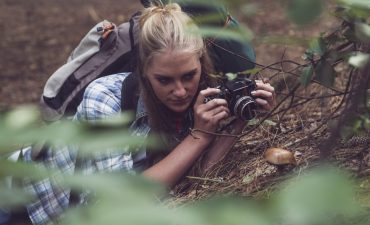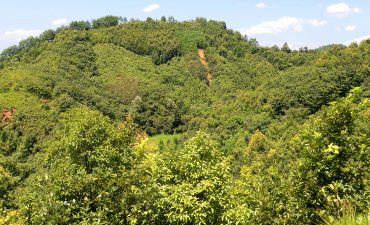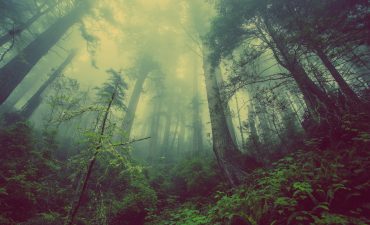Species richness in the neighbourhood promotes forest growth
In the „BEF-China“ biodiversity experiment, researchers from Germany and China have been investigating for ten years how the diversity of tree species in forest ecosystems influences the coexistence and growth performance of trees. More than 400,000 trees and shrubs have been planted in China on an area of about 50 hectares. In the meantime, many trees are 10 to 15 metres high and the treetops have developed a canopy, some of which is tightly closed.
The study now shows that tree individuals in a species-rich neighborhood grow much better and produce more wood than those who are surrounded by their peers, i.e. individuals of the same species. It becomes so clear that the interaction of a tree with its immediate neighbours also leads to a much higher productivity of forest stands. In addition, the „coexistence“ of neighbouring trees explains more than 50% of the productivity of a forest stand. The importance of neighborhood relationships for productivity increased as the number of tree species at stand level increased.
The research team was also able to decipher which mechanisms in species-rich stands lead to an increase in the amount of wood produced by individual trees: Their findings show that the neighborly competition between the trees can not only be weakened with increasing species richness, but that the trees even support each other in their growth, for example by improving the microclimatic conditions or by a positive interaction of the fungal partners living in the soil.
Comment
These findings show that the coexistence of the neighbouring trees and their small-scale interactions explains how a species-rich mixed forest grows over the entire area. For afforestation on degraded areas, results are faster and better if species-rich mixtures of native tree species are used on a small-scale scale instead of the usual monocultures. In addition, the findings show how important it is today to protect biodiversity effectively in the long term. This supports not only the functioning of ecosystems in a variety of ways, but also the ecosystem services used by humans, such as the production of wood.
Complement: In the previous study (same experiment), the authors go into the mechanisms of neighbourhood interactions in more detail: Andreas Fichtner, Werner Härdtle, Ying Li, Helge Bruelheide, Matthias Kunz and Goddert von Oheimb (2017): From competition to facilitation: How tree species respond to neighbourhood diversity. Ecology Letters 20, 892-900.
Note: The authors Fichtner, Härdtle and Oheimb are also members of the scientific advisory board of the Naturwald Akademie.
Source
A. Fichtner, W. Härdtle, H. Bruelheide, M. Kunz, Ying Li und G. v. Oheimb (2018): Neighbourhood interactions drive overyielding in mixed-species tree communities. Nature Communications 9:1144. DOI: 10.1038/s41467-018- 03529-w


